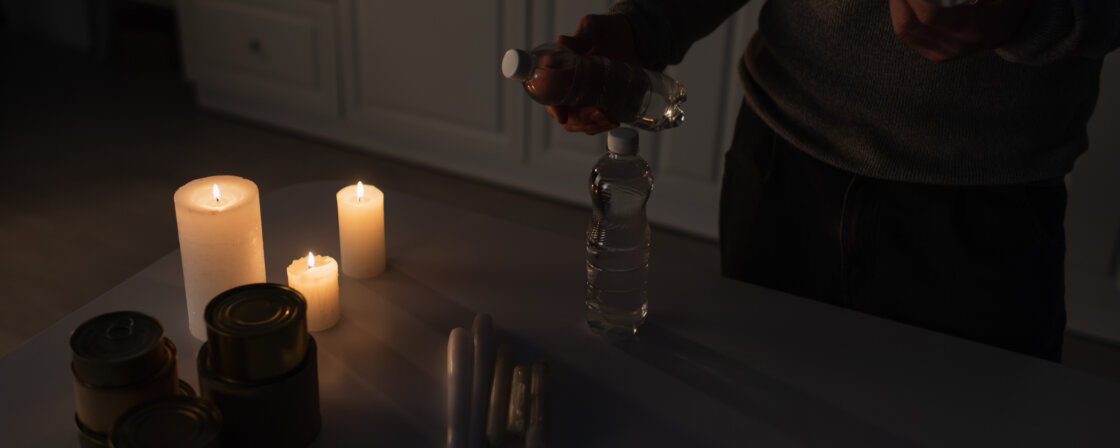The new owner stopped paying the bills
The subject of the conflict was an apartment unit whose original owner had stopped paying his utility bills, leading the owners’ association to decide to disconnect his hot water and heating. Despite the change of ownership, when the apartment passed into the hands of a new company, the situation was not remedied. The transfer of ownership of the apartment was carried out by voluntary auction, where it was not clear whether the debts of the previous owner had been transferred to the new owner (the new owner understandably rejected the possibility of transferring debts). The new owner of the apartment had similarly bad financial habits, stopped paying the utilities after two months and the debts continued to accumulate. These persons were intertwined.
Are you solving a similar problem?
We will check your articles of association of a condominium or housing cooperative or we will write them for you from scratch.
We will always ensure that they comply with current legislation. The statutes prepared by us are always tailored to the needs of the residents of the house. We can also set up a JVU or a turnkey housing cooperative for you. We will arrange everything quickly, flawlessly and at pre-determined prices. You can pay only after the service has been provided.
I want to consult
- When you order, you know what you will get and how much it will cost.
- We handle everything online or in person at one of our 6 offices.
- We handle 8 out of 10 requests within 2 working days.
- We have specialists for every field of law.
Sharp reaction: disconnection of heat supply
In response to this behaviour, the unit owners’ association took the radical step of disconnecting the heat and hot water supply to the original owner. They then demanded that the new owner not only pay all his debts, but also repay the previous debt. However, the new owner refused to pay his predecessor’s debts and refused to pay for the utilities himself, arguing that he would start paying when the supply was restored, which, in his opinion, the JVU was not entitled to interrupt. However, he did not obtain anything in that way. Consequently, he turned to the Czech courts and demanded that the association provide him with hot water and heating for his apartment. The District Court in Most, however, rejected his claim, stating that if he paid his debts, there was nothing to prevent him from being connected. The court also found that the original owner had proposed a voluntary auction on purpose to avoid paying the debts, but after the auction the apartment remained in the family. The court found this practice to be unfair and immoral. Therefore, it is not possible to condemn this practice in general.
The Regional Court took a similar view, holding that the sale and subsequent purchase of the flat was an abuse of rights. Both courts emphasised that the owner of the flat would only need to pay the debts in full and there would be no obstacle to reconnection and the provision of services thereafter. Thus, the disconnection was not gratuitous or arbitrary, but was instead a kind of defence against the homeowner’s arbitrary disregard of the law and obligations.
Both courts also found that family ties between the companies that owned the apartment in the past and currently were proven and that the proposed auction was a purposeful auction to get rid of debts.
The Supreme Court then concluded that the debtor’s appeal was admissible to address the question of whether the owners’ association was entitled to decide to cut off the supply of services to a unit owner who failed to pay the proper house and land management fees and utility deposits (bills). This question has not yet been addressed in the decision-making practice of the Court of Appeal.
Tip for article
Tip: Neighbours are often nothing but trouble – just when you have to get up for work the next morning, the neighbours have opposite plans and throw a party. The party goes on loudly into the early hours of the morning and you’re just as sleep-deprived and grumpy. Or they leave for a 12-hour shift and leave their dog at home. The dog then barks unhappily all day and wakes up the baby you’ve just laboriously put to sleep. How to deal with these cases? Take the house rules.
Which services can be disconnected?
According to the Supreme Court, the obligation of the unit owner to pay the contributions for the management of the house and land derives directly from the Civil Code and is one of his/her basic obligations. However, it is necessary to distinguish between the payment of the house and land management contributions and the payment of services. By paying the contributions for the management of the building and the land, the unit owner contributes to the costs related to the management of the common parts, whereas the payment of services is related to the use of the apartment itself.
The community of owners may be the provider of the services and the unit owner the recipient. In this case, the services may be, for example, the supply of heat and centralised hot water, water supply, sewage disposal, operation of the lift or cleaning of common areas in the building. In most cases, these will be so-called essential services, the supply of which the recipient of the services is usually unable to provide himself. The owner of the unit is of course obliged to pay the costs incurred in connection with the provision of these services to the community of owners in the form of advances and to pay any arrears after they have been settled.
However, a distinction must be made between all the services provided to the owner and those for which he does not pay. They may not be identical services. It is also necessary to distinguish between services that the tenant or unit owner negotiates directly with the supplier and those provided by the landlord or the community of owners.
In other words, even if the provider and the recipient of the services have an obligation to perform something towards each other and at the same time the right to demand another performance, according to the Supreme Court, these are not necessarily mutually dependent performances, i.e. where the obligation to perform is conditional on simultaneous consideration. It is not a so-called synallagmatic obligation. Nor does it mean, however, that the owners’ association should always and in its entirety provide the services it provides, regardless of whether the unit owner pays for them, i.e. that it should provide them to the unit owner at its own expense.
The owners’ association may decide not to supply services to unit owners who owe payment for the provision of services. Of course, such a procedure will only be possible in buildings where it is technically feasible to disconnect certain services and the chosen procedure will not jeopardise the supply of services to other, properly paying, unit owners.
In the conclusion of its decision, the Supreme Court also commented on the manner of transfer of ownership of the apartment. According to the Supreme Court, if a unit owner decides to ‘sell’ his unit at a voluntary public auction, nothing prevents him from informing the persons who decide to take part in the auction of the amount of the debt and the auctioneers must be aware that they are auctioning the ownership of the unit and that it is subject to the statutory transfer of debts. Thus, according to the Supreme Court, the debts were transferred to the new owner of the unit. Therefore, the reason for which the defendant’s water and heat supply was disconnected also stood. Therefore, the conditions for restoration of services (hot water and heat) were not met.
Tip for article
Tip: You probably also hated it when you were a kid and your mom made you share your toys or candy with other kids. Now, as an adult, you may be surprised to discover that this is the trend of our time: the sharing economy and shared living. Although it is considered a nightmare by some citizens and politicians, many economic experts instead see it as the future of the industry. And how does the law view it?




